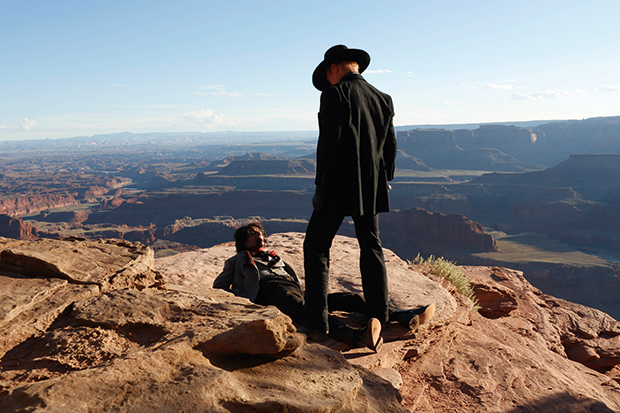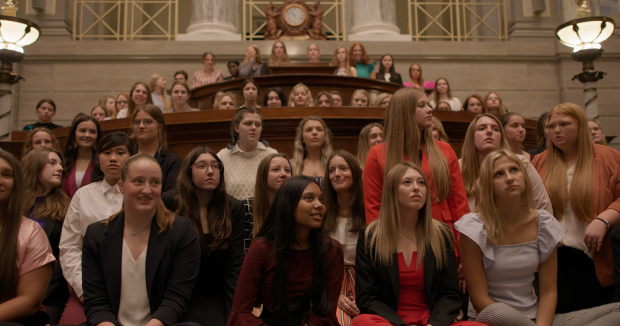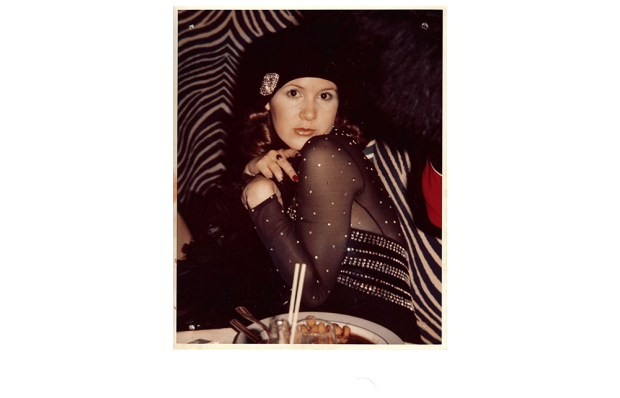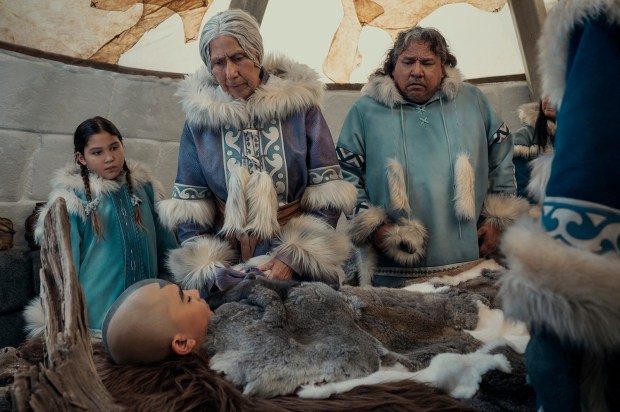The other day James Lovelock, the sprightly 97-year-old inventor of Gaia theory, told a mildly surprised Guardian interviewer that he wasn’t remotely worried about climate change any more. A far more plausible threat, he explained, were all the killer robots that would soon emerge and find no use for us inconvenient humans.
Apparently this is a fashionable worry. It has to do with something called the ‘singularity’, which is the theoretical moment when machines become so sophisticated than they can outthink us, then advance at such a pace that we become powerless to stop them. Some experts are seriously concerned, for example, about the development of ‘fully autonomous weapons’ — killer robots which can select and fire on targets independent of human intervention. Fine if they’re taking out our enemies — but what if they turn on us? What if they find a way of overriding the off button?
So the new series Westworld (Sky Atlantic, Tuesday) is bang on trend, concerning as it does a bunch of robots going tonto in a futuristic pleasure-world where humans pay lots of money to live out, in supposed safety, all their sex and adventure fantasies.
In the original 1973 movie, written by Michael Crichton, there were three alternative robo-holiday destinations: one Wild West; one orgiastic Roman; one Medieval. This reboot, adapted by Jonathan Nolan, appears content so far to stick to just the cowboy world. It’s a slightly odd choice when you think about it: hardly anyone under 50 much cares about the Wild West; by the time we reach the future in which Westworld is set, probably no one will. Not that this is remotely bothersome when you’re watching: the production and detail are too lushly pleasing; also, you’re far too busy mulling over all the existential complexity.
‘Do androids dream of electric sheep?’ That was the question Philip K. Dick asked in the prescient 1968 short story which became the 1982 film Blade Runner. This seems to form the basis of the glitch which is about to make the robots go mental in Westworld: their creator, Dr Robert Ford (Anthony Hopkins), has grown too much in love with them. In his obsessive quest to make them as human as he possibly can, he has instilled in them qualities dangerously close to consciousness. The replicants in Blade Runner had the same problem: they felt so human that they were understandably miffed when Harrison Ford came along and started killing them. And as a viewer you were torn too, not least because the replicants seem to speak with so much more poetry than the grim, grey, implacable humans: ‘fireships off the shoulder of Orion’, ‘flowers in the rain’.
Apart from who cleans up the sex robots after each session and can we be sure they’ve done a thorough-enough job?, my main question at the moment is: how on earth are they going to spin this into ten whole episodes, let alone more than one series? I know this is a silly question because I wondered the same thing about Narcos (Netflix), and nearly two seasons in there has never been a dull moment or any padding in that. Even so, there’s clearly a lot of fleshing out and complicating to be done to match the film version, which basically comprised over an hour of the human tourists overindulging themselves, followed by 20 minutes of their being punished for their vices by Yul Brynner and his vengeful robot mob; the end.
Already we’ve got a promisingly evil, sadistic baddie — the Man in Black played by Ed Harris; and a strange love interest in the form of a wholesome blonde ranch girl played by Evan Rachel Wood, who is just beginning to discover that she isn’t human, that the lovely Dad she finds rocking on the verandah each happy new day isn’t real, and that the beautiful Utah scenery she keeps admiring is just the sandbox construction of futuristic technicians in a laboratory far, far away. She’s just a host — there to be rescued, shagged or brutally tortured, according to the guests’ whims.
Suppose she does gain autonomy, though: how exactly is that going to work? So far it has been hinted that each robot model contains the mental vestiges of all the previous human roles it has been programmed to play. But even with all that accumulated hinterland, it seems slightly implausible that even the most advanced robot host will be capable of attaining a level of independence such that they can respond to any of an infinite number of possible scenarios.
One more question: the robot horses are all exactly like real horses. But if you turn up on a Westworld holiday and you don’t actually have riding skills, how can you saddle up and join the posse, or lasso steers or any of that cowboy malarkey?
Scriptwriters are paid a lot of money to sort out this stuff. Can’t wait to see how they do it.
The post Revenge of the robots appeared first on The Spectator.
Got something to add? Join the discussion and comment below.
Get 10 issues for just $10
Subscribe to The Spectator Australia today for the next 10 magazine issues, plus full online access, for just $10.
You might disagree with half of it, but you’ll enjoy reading all of it. Try your first month for free, then just $2 a week for the remainder of your first year.















Comments
Don't miss out
Join the conversation with other Spectator Australia readers. Subscribe to leave a comment.
SUBSCRIBEAlready a subscriber? Log in